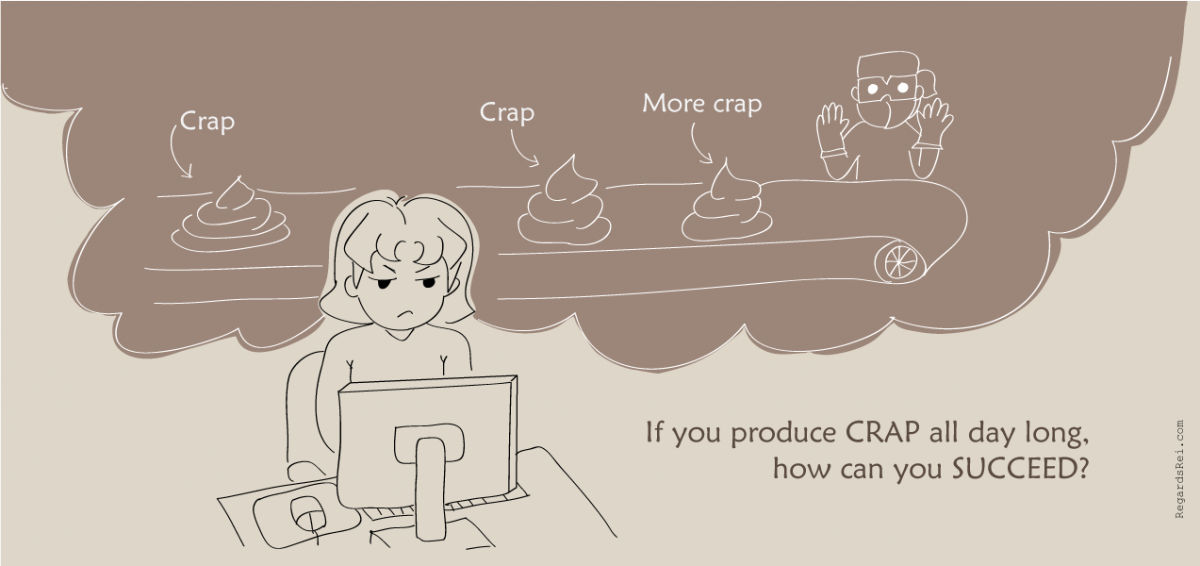
Last blog, I talked about the second (out of five) epiphanies I had in getting myself out of a financial funk.
Before we get into my third epiphany, "Creating a habit of doing everything successfully," I want to talk about attitude and perception.
Most people who are in a financial funk tend to look at it as something “bad” happening to them, since the experience is so overwhelming, stressful, and anxiety-ridden.
In such a desperate state, they might even resort to wailing at a higher deity, demanding an answer to the question: “Why is this happening to me?! What am I being punished for?!”
But I want to offer you a different perspective, a different way of looking at the situation.
Going into a financial funk isn’t something bad. Actually, to be frank, it’s something quite natural.
Woa, woa… Hey now, hold the ‘but’ and give me a chance to explain this.
Imagine yourself running. You’re running straight on a road, moving forward and making great progress.
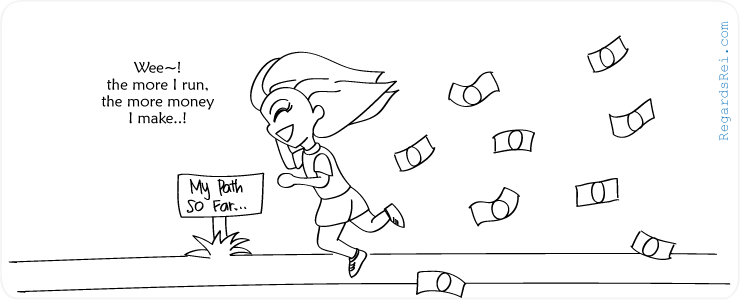
But you soon come to a crossroad that forces you to make a decision on which way to pivot. So naturally, you slow down your pace as you try to decide, and you slow down even more as you pivot.
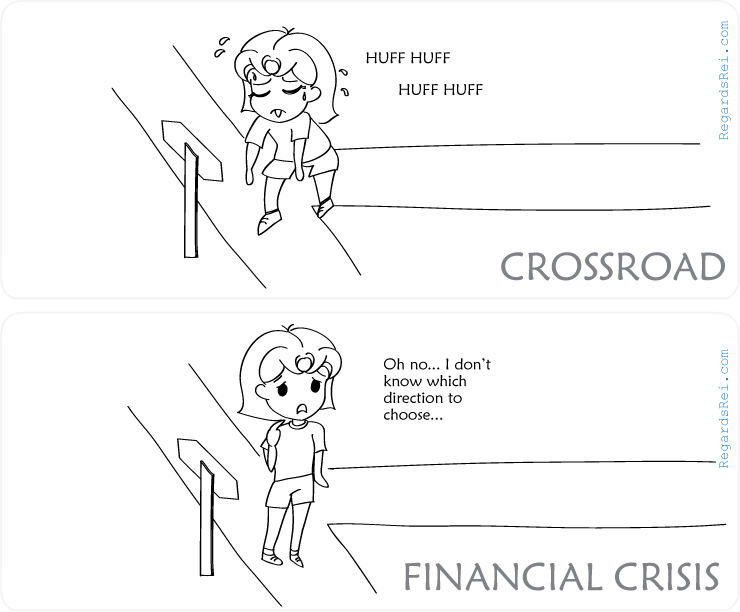
When you’re set on your new path, you slowly start to pick up the pace. At first, it might be hard to go as fast as you had before, but soon, you get going and you find yourself running as fast.
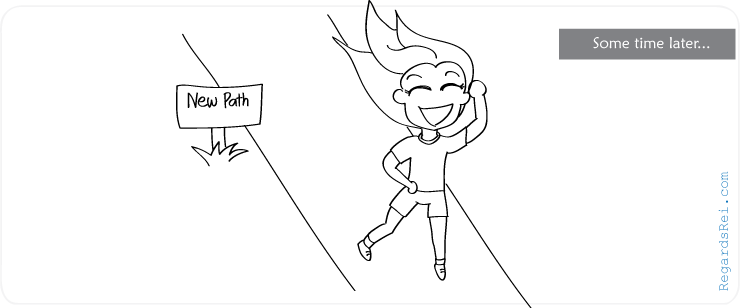
Obviously, this is a metaphor.
You see, when you’re running full blast head-on in your life path, you probably find yourself earning a good, steady income because you are going forward. But when you reach a pivotal point in your life where you have to change paths, that’s when you have to slow down your pace or even come to a complete stop so that you can make decisions. And because you’ve momentarily slowed or have come to a stop, so does the flow of your income. And that’s when financial funks happen.
When I think back to my own experience, I realize that I had gone through a financial funk because my life was pivoting into a completely different direction, one that I would be happier in. In fact, I think all crossroads in my adult life were accompanied by a financial funk.
At the end, however, I always chose the path that best resembled me and aligned with who I am at the core.
So instead of viewing your struggles as something bad that’s happening to you because you weren’t good enough or you did something seriously wrong, accept the situation as it is by understanding that it’s simply a natural occurrence, not a punishment personally crafted by God or a higher power above.
However, accepting the situation as it is doesn’t mean you should relinquish your power to do something about it. Because at the end, you will be your own knight-in-shining armor.
And in the spirit of getting yourself out, let’s get on with our series on financial funk. This is the third (out of five) epiphanies I had on getting yourself out of this situation.
Epiphany #3: Create a habit of doing everything successfully.
During my financial funk, I was paralyzed with the belief that I couldn’t do anything right.

I felt like a blind mole rat bumping hard against walls when it came to success. Success felt illusory exclusively to me, as if I was the only one who wasn’t “getting it” while others understood the mysterious workings of it so clearly. It was embarrassing how helpless and stupid I felt.
I remember being so sick of myself at the time. I was sick of the way I lived my life half-heartedly, never fully committing my energy and efforts to one endeavor. When I worked, I constantly cut corners in order to get fast results and save time, rather than seeing the details worked out. And for some incredible reason, I somehow still managed to run out of time, and (get this) without accomplishing anything.
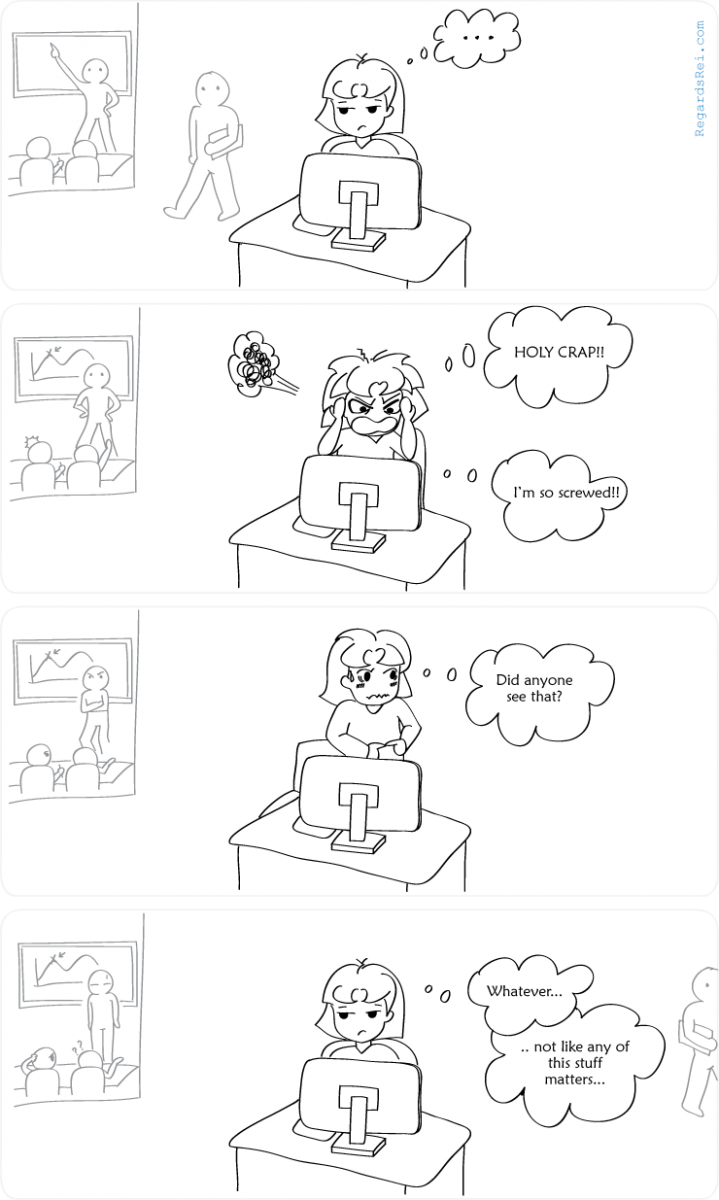
I felt like a pile of crap that only knows how to produce more crap.
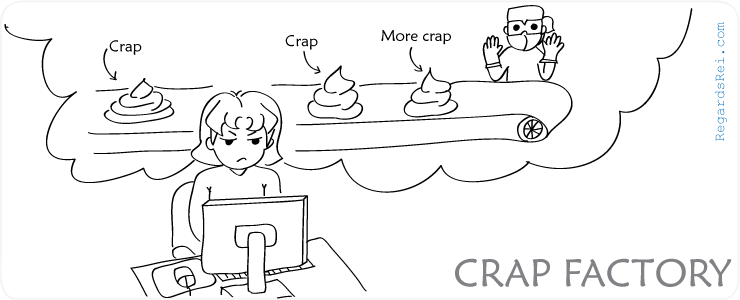
Then one day, I said to myself, enough is enough. I am going to figure out how to be successful even if it kills me.
So I asked myself a very important question: How do I create success?
And that’s when I had my third epiphany.
If I’m in the habit of doing everything successfully, wouldn’t I eventually create success? If I did everything to the best of my abilities rather than doing things haphazardly, wouldn’t I be creating success?
Maybe, success was nothing but a habit.
At that moment, I realized what it means to be successful.
The fact was, the simple definition of a successful person is a person who does what he/she aims to accomplish in a successful manner.
Think about it for a second. If you were to do every task successfully, no matter how insignificant the task, then how would such a habit change you after a while? What if you carry out all tasks in a successful way, I mean, even seemingly insignificant, mundane tasks like doing the laundry?
How would it change you?
After my epiphany, I figured if I consciously put an effort to do all tasks successfully, starting with mundane chores, I should be able to train myself to do everything and anything successfully.
So from that moment on, I washed the dishes successfully. I cleaned up spills successfully. I organized my desk successfully. Even the smallest action, such as closing a ziplock bag, I did it successfully.
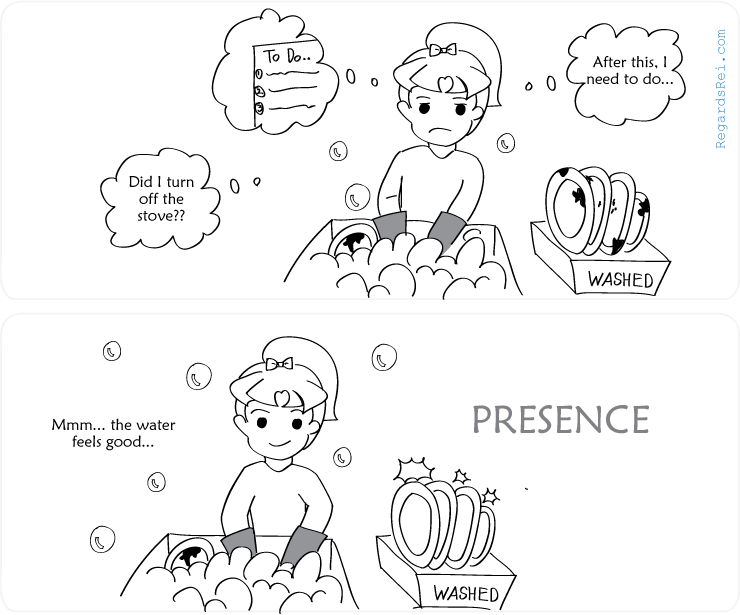
So how do you determine if you’ve done something successfully? The measure of success shouldn’t come from the external. That is, no one should tell you whether you’ve done something successfully or not. It should be a measure of your own happiness with the outcome.
So, my standard of success was simple: if I feel happy about the outcome, then I’ve done it successfully. But until I’m happy, I won’t give up, I decided. I’ll persistent and achieve the outcome I want.
And as I did this, I found out that I was developing a habit of doing everything successfully. And we all know how powerful habits can be.
By practicing doing anything and everything successfully, I developed a sense of what it takes to do anything successfully, such as:
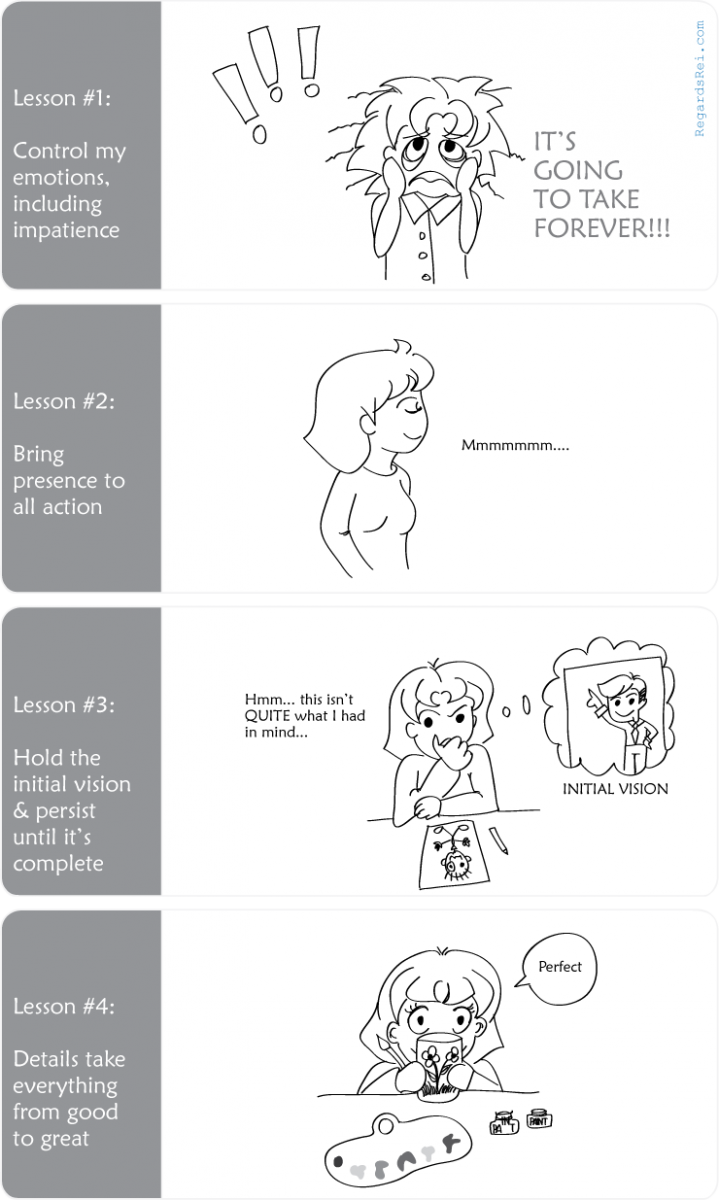
And I also learned:
- How to calm my ego when the process is more challenging that I had initially thought
- How to calm myself when it feels like it’s going to take “forever”
- How to resist compromising and settling for good enough
You see, success isn’t an external achievement. It’s a habit. More precisely, it’s an internal discipline, habituated.
That’s why you see people who have been successful in one area, be successful in a totally different area as well.
If you do everything successfully, you will develop both little and big habits that begets success. You will start to think differently, you will start to behave differently. These habits will translate to work habits, and so you would start doing work successfully to the best of your abilities. In such a state, your work will shine and you’ll get noticed. That’s how you can become successful.

Enjoy reading the series on "Five Steps to Getting Out of Financial Funk":
